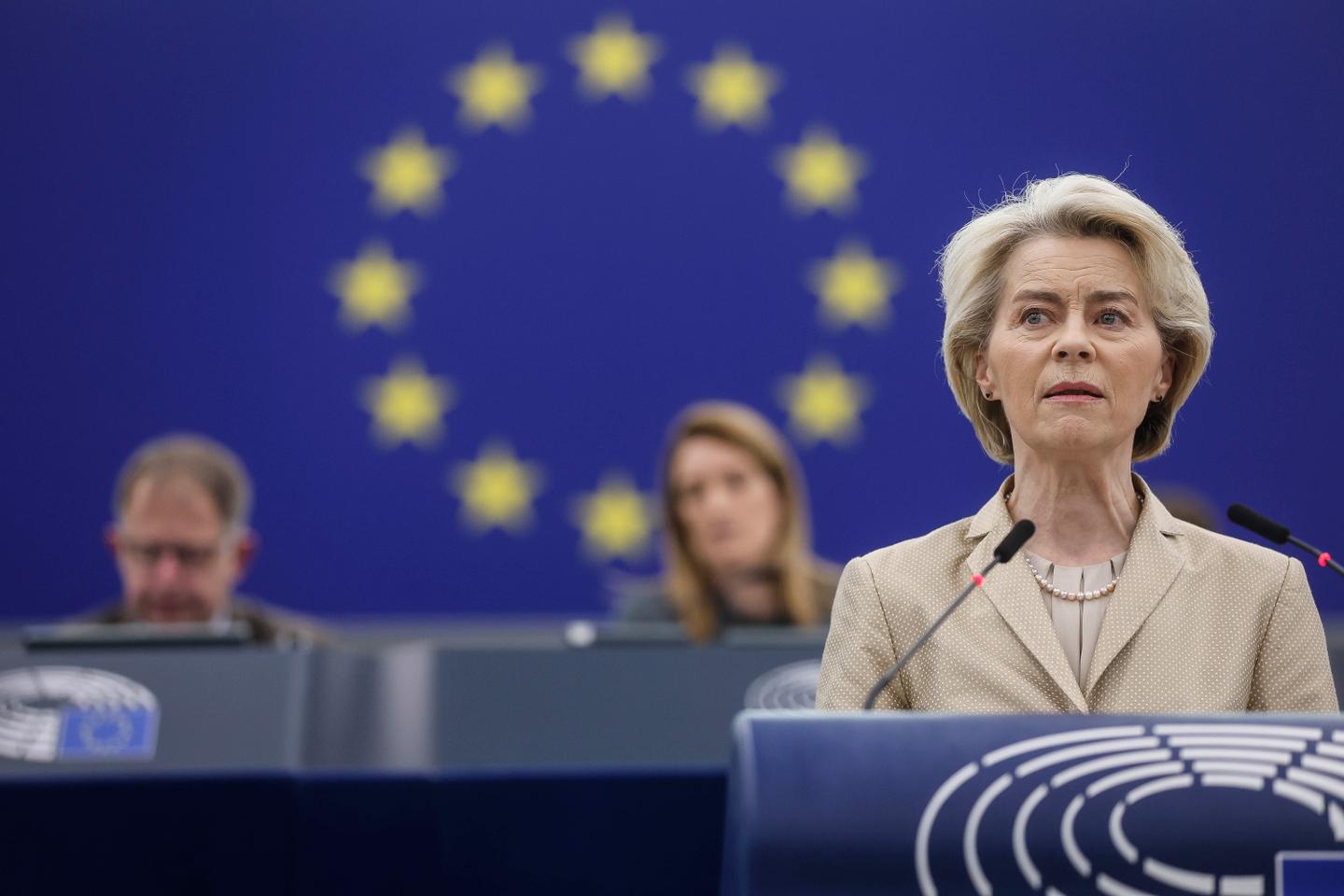


On March 6 and 7, at the European People's Party (EPP) Congress in Bucharest, Ursula von der Leyen, president of the European Commission, will be officially named the European right-wing candidate for her succession. Although the post will not be up for renewal until after the European elections, scheduled for June 6-9, she is not waiting for this crown before embarking on the campaign trail.
To be reappointed, von der Leyen must first be nominated by the leaders of the EU's 27 member states, by a qualified majority, who must choose a candidate from the ranks of the political party that came out on top the day after the vote, most likely the EPP. The candidate must then be endorsed by at least 361 of the 720 newly elected members of the European Parliament.
It's an uphill struggle but von der Leyen has proved that she knows how to be pragmatic. "She's flexible," said Sébastien Maillard of the Institut Jacques Delors. Indeed, in recent months, Angela Merkel's former minister has not hesitated to change position when it suited her career.
Rolling back the Green Deal
Increasingly unpopular in Europe, the Green Deal, which she made a priority in her first term of office, may not survive. Up against the EPP, which loathes it, and numerous heads of state and government, foremost among them President Emmanuel Macron, calling for a "pause," von der Leyen now appears sympathetic to this view. She has even tentatively started to roll back on some of its initiatives and, to defuse the anger of European farmers, is considering easing the environmental constraints of the Common Agricultural Policy.
More than ever, von der Leyen is playing it by ear, guided by opinion polls. Even on the issue of EU enlargement to include Ukraine, which she promoted with conviction as soon as Russia was invaded, but to which European citizens are largely hostile, she is now prevaricating.
First and foremost, von der Leyen is working on her reappointment. But, as Maillard observed, she is "putting the Commission in campaign mode," and bringing it into her own fight. For, as head of the institution, where she can decide to push a particular agenda, abandon some legislative projects, and launch others, she also plays a part in the European election campaign. Von der Leyen "should be more careful with neutrality when she is both president and candidate," High Representative Josep Borrell told the daily El Pais on February 26.
The Commission president is not the first to be in this peculiar position, where she is accountable for her achievements while at the same time having to convince the 27 member states and the European Parliament to reappoint her. Two before her tried and won: France's Jacques Delors, who was in office between 1985 and 1995, and Portugal's José Manuel Barroso, who succeeded him between 2004 and 2014. But times were different.
You have 49.05% of this article left to read. The rest is for subscribers only.
